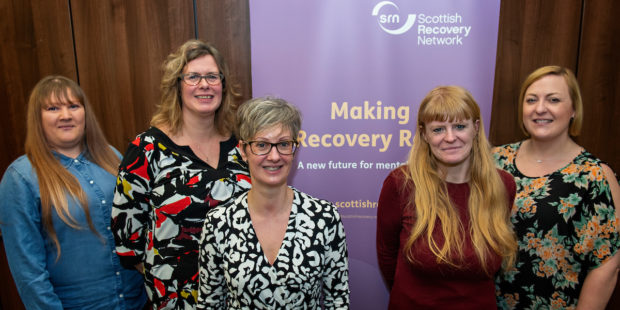
Dundee mental health support scheme hailed as national success story
The success of a new approach to supporting mental health issues in Dundee has been hailed as a national success.
by Emma CrichtonMaking Recovery Real, which has been trialled in Dundee, brings people who have battled mental health challenges together with professionals, to decide the best support to offer in the city.
Participants from Making Recovery Real in Dundee travelled to Edinburgh to speak at a Scottish Recovery Network about how the scheme works.
They premiered a short film showing how people with experience of mental health issues could give their perspective on what helped them and go on to offer support to others.
It is hoped that the project will be adapted by communities across Scotland looking for a new approach to developing and accessing mental health support.
One of the service users, Rona Foy, said working with people who had similar experiences helped her see how the group could help her and she is now supporting others.
“I saw other people flourish that were on the group and they started to become more confident and wanted to help other people.
“It has given me lots of different opportunities and it has just been great.
“I am going to be facilitating a peer to peer course myself after doing on which is exciting and I just think it’s so worthwhile.”
The participants worked with professionals from Dundee Health and Social Care Partnership, NHS Tayside, Dundee City Council and Dundee Volunteer and Voluntary Action (DVVA), among others.
Ruth Brown, team leader of mental health engagement and involvement at DVVA and chairwoman of the Making Recovery Real partners group said: “Our work with Scottish Recovery Network has been transformational for individuals who live with mental health challenges, for mental health organisations, and for our strategic planning and delivery mechanisms in the city.
“It enabled us to work more effectively together, to make better decisions, to keep lived experience at the centre of all we do, to maintain our focus on recovery and to invest in growing peer support.”